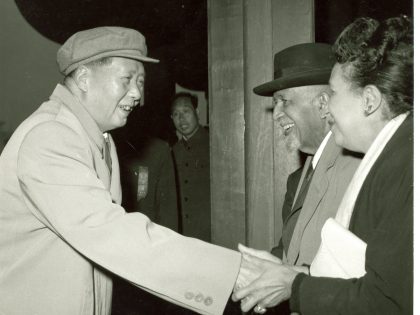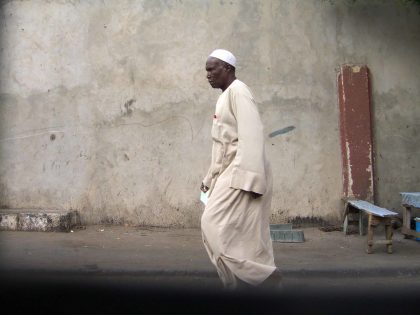
The land of the freed people
'We Slaves of Suriname' (1934) was the first study of Dutch colonial rule from the perspectives of the people who resisted it. It is has been published in English for the first time.

'We Slaves of Suriname' (1934) was the first study of Dutch colonial rule from the perspectives of the people who resisted it. It is has been published in English for the first time.

May 21 marks the anniversary of the writer and commentator Binyavanga Wainaina’s untimely death in 2019. He was 48.

Yunxiang Gao’s new book takes a fresh look at connected lives of African American and Chinese leftist activists, artists and intellectuals after World War II.

In the early 1970s, Walter Rodney, expelled from Jamaica, took a post in Tanzania. In Leo Zeilig’s new book, he captures those exciting, but also difficult years and how it formed Rodney.

The first book collection dedicated to contemporary Black South African feminist perspectives has seen the light. One of the editors breaks down the content.

Marcel Paret’s book, "Fragmented Militancy: Precarious Resistance in South Africa after Racial Inclusion," tries to make sense of politics in South African urban informal settlements.

Between melancholy, terror, and disillusion, Petit Pays is a groundbreaking and eye-opening take on one of the darkest pages of African history, one that is often misunderstood in the West.

Siphiwe Gloria Ndlovu's novel "The Theory of Flight" may be the first to take seriously Zimbabwe’s complicated race politics, beyond the obvious black vs whites.

Basma Abdel Aziz navigates the blurred boundary between dystopian fiction and reality in Egypt, in her new novel, "Here is a Body."

How much work do we need to do to see our history and that of the African continent in all its complexity?

Fiston Mwanza Mujila's debut novel is painted by the music of a nightclub in a fictional central African city-state. On this month's AIAC Radio we imagined what it might sound like.

Robert Vinson's biography of Albert Luthuli hints at how liberation histories might be reframed to better address the problems of the present.

A new book revisits the career of Uganda’s first elected prime minister, Benedicto Kiwanuka, his followers, and political ideas.

Islamic scholarship in Africa and the meaning and end of decolonization in the work of religious studies scholar, Ousmane Kane.

Africa Is a Country Radio is back with a new season. Each show will be inspired by the work of a different African author. First up, we explore the Ethiopian Tizita with Mukoma Wa Ngugi.

This week on AIAC Talk: 2021 has been declared a great year for African literature, but what does that actually mean?

A new book on policing in South Africa wants to go beyond the usual call for reform. But adapting literature tuned for reform to the task of abolition is a difficult needle to thread.

The New Apartheid, a new book by Sizwe Mpofu-Walsh, seeks to define a generational mission in South Africa. Instead, it shrouds our existing one in complete opacity.

The radical politics of the professional middle classes—too often found full of rhetoric, but short on action—are explored in Leo Zeilig’s new novel, The World Turned Upside Down.

The CIA committed many crimes in the early days of post-independence Africa. But is it fair to call their interference “recolonization”?